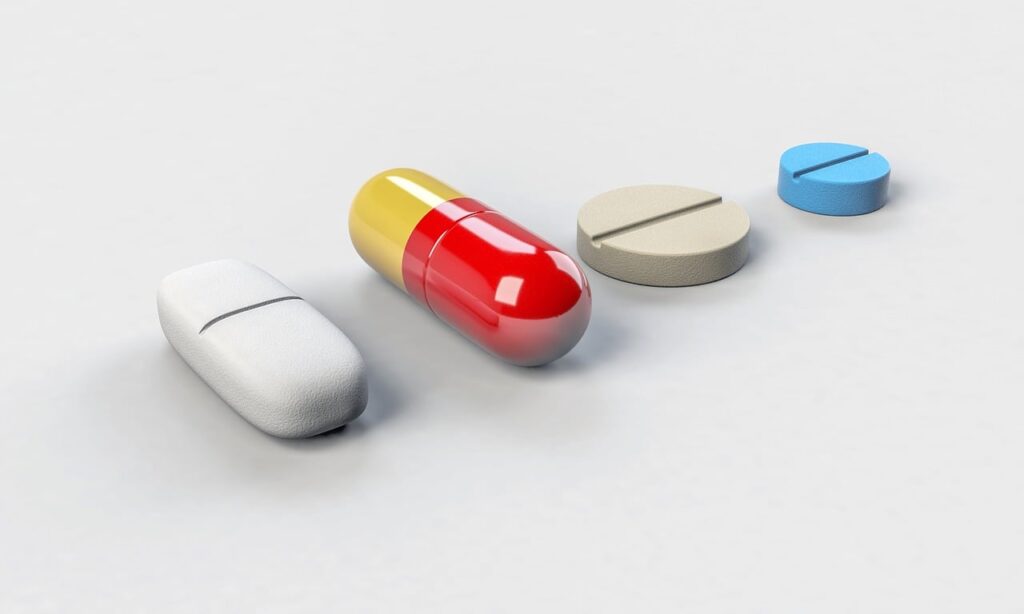What does it mean if aspirin relieves chest pain? well, Aspirin’s ability to relieve chest pain is often linked to its biochemical mechanism of action and its aftermath effects on the cardiovascular system.
Aspirin Relieving Chest Pain
Aspirin (My favorite being heart attack and potentially spare heart muscle damage. Aspirin is frequently recommended at the first sign of symptoms to enhance results and can be taken quickly in the event of a suspected heart attack. This can be part of the early response before medical assistance arrives.
If aspirin is effective in relieving your chest pain, then you can fairly have a clue that your chest pain may be related to a certain cardiovascular condition, particularly those involving blood clots or reduced blood flow to your heart. However, it’s not good to conclude too early, you need your doctor’s testing and advice. So what does aspirin have or what does it mean if aspirin relieves chest pain, well here are the key properties of aspirin that allow us to answer that question:
1. Aspirin Has Antiplatelet Properties

Aspirin is known for its antiplatelet biochemical effect, meaning it inhibits the aggregation of platelets, the blood cells that play a crucial role in forming blood clots. By preventing excessive platelet aggregation, aspirin reduces the risk of clot formation within your blood vessels, particularly in those supplying the heart (coronary arteries).
2. Aspirin Has Anti-Inflammatory Effect
Aspirin has anti-inflammatory properties that can help you reduce inflammation in blood vessels. Inflammation can cause your blood vessel walls to become narrow or constricted, limiting blood flow and hence causing you pain. By reducing inflammation, aspirin promotes improved blood flow through the vessels, which relieves chest pain associated with reduced blood flow to the heart.
3. Aspirin Can Prevent Heart Attack (Myocardial Infarction)

Aspirin is often used as part of immediate treatment during a heart attack. When a heart attack occurs, a blood clot usually obstructs the blood flow to a part of the heart. Aspirin, as an antiplatelet agent, can help prevent the clot from growing and further blocking your blood vessels, potentially reducing the severity of the heart attack and providing relief from associated chest pain.
4. Aspirin Helps in Blood Clot Dissolution
In some cases, aspirin can help you dissolve a blood clot that may be causing partial blockage in a coronary artery. This action can restore blood flow to the heart muscle, relieving chest pain associated with the clot.
Kindly note that while aspirin can provide relief for certain types of chest pain, not all chest pain is related to cardiovascular issues. Chest pain can have various causes, including gastrointestinal reflux disease (GERD) problems, musculoskeletal issues, respiratory conditions, or even anxiety. Therefore, if you experience persistent or severe chest pain, you must seek immediate medical attention for a thorough evaluation and appropriate diagnosis to determine the underlying cause and the most suitable treatment. Additionally, any use of aspirin or any medication should be done in consultation with a healthcare professional and according to appropriate dosages and guidelines.
Aspirin for Chest Pain Dosage
The recommended dose of aspirin for chest pain due to a suspected heart-related issue is typically one 75mg-325-milligram (mg) aspirin tablet (also known as regular or full-strength aspirin) chewed or crushed and then swallowed as soon as possible. This dosage helps to inhibit the formation of blood clots in the coronary arteries, which can be critical during a heart attack or in the presence of unstable angina
The best time of the day to take aspirin for heart health is usually in the morning and may also vary depending on your circumstances and the advice of your healthcare provider. Aspirin is often used for heart health in specific situations, and the timing can be influenced by the reason you are taking it. Here are some common scenarios:
- Preventive Use: If you have been prescribed aspirin as a preventive measure for cardiovascular disease or to reduce the risk of a heart attack, your healthcare provider will provide specific guidance on when to take it. It is often recommended to take it in the evening with food to minimize stomach irritation.
- Heart Attack Prevention: For individuals at high risk of a heart attack or those who have already experienced a heart attack, immediate action is necessary. In this case, the best time to take aspirin is as soon as you suspect a heart attack. You should call emergency services and chew or crush a 325-milligram aspirin tablet to help inhibit the formation of blood clots.
- As Directed by Your Healthcare Provider: Always follow the instructions provided by your healthcare provider. They will consider your specific risk factors, medical history, and other medications you may be taking when recommending the timing and dosage of aspirin.
- Regular Use: If you are taking aspirin as part of your daily medication regimen, it is often suggested to take it at the same time each day, typically in the evening with food.
For better body pain treatment results you can try these approved brands of aspirin; Bayer Aspirin 325 mg, Genuine Bayer Aspirin, 500 Tablets” target=”_blank” rel=”noreferrer noopener”>Bayer Aspirin 325 mg, Genuine Bayer Aspirin, 500 Tablets, Frequently Asked Questions
Aspirin makes your heart feel better because eases chest pain associated with angina by reducing inflammation and thinning your blood. this improves blood flow to the heart and reduces strain on the heart muscle. Additionally, aspirin’s blood-thinning properties prevent the formation of clots that can block blood flow to the heart, potentially causing a heart attack. It also lowers the risk of these clots traveling to the brain and causing a stroke. This makes aspirin a multifaceted ally in cardiovascular health. Q3: Can you give aspirin to someone with chest pain?
If someone is experiencing chest pain, and a heart-related issue is suspected, it’s advisable to give them low-dose aspirin if it’s available and there are no contraindications, as it may help reduce the risk of a heart attack. However, consulting a healthcare professional is essential. Aspirin may alleviate chest tightness if it’s related to reduced blood flow to the heart. It can improve blood flow and reduce the discomfort associated with angina. Aspirin can help prevent heart attacks because it reduces the risk of blood clots forming in the coronary arteries. These clots can block blood flow, leading to a heart attack. Aspirin can start working within 30 minutes, but its full effect in preventing blood clot formation may take several hours. If you are living with certain medical conditions, such as bleeding disorders, peptic ulcers, or allergies to aspirin, and taking specific medications you should avoid aspirin. Consult your healthcare provider for guidance. The benefits of taking aspirin include reducing the risk of heart attacks and strokes by preventing blood clot formation, especially in individuals at high risk for cardiovascular events. It can be safe to take low-dose aspirin daily for certain individuals at high risk for heart disease, but it should be done under the guidance of a healthcare provider. Aspirin’s common side effects include stomach irritation, gastrointestinal bleeding, increased risk of bleeding disorders, allergic reactions, tinnitus, gastric upset, asthma exacerbation, and potential interactions with other medications. It should not be given to children with viral infections to avoid the risk of Reye’s syndrome, and its use should be closely monitored, especially in individuals with specific medical conditions or when taking other medications. Aspirin does not lower cholesterol levels. Cholesterol management typically involves lifestyle changes and medications like statins and lifestyle changes. Statins are specifically designed to reduce cholesterol in the bloodstream. Aspirin primarily works by reducing the risk of blood clot formation and has cardiovascular benefits, but it does not directly affect cholesterol levels. Aspirin can relieve several symptoms and it provides various benefits, including: While aspirin can provide some relief for your chest pain, its effectiveness is not a definitive indicator of whether the pain is due to a heart attack. So there’s no need for panic. Chest pain can be caused by various factors, and aspirin is often recommended for its potential to help mitigate heart attack symptoms by thinning the blood and improving blood flow. Chest pain can also be the result of non-cardiac issues, for example, indigestion such as in the case of chest pain after eating, muscle strain/pulled muscle chest pain, respiratory problems, or chest pain after taking ibuprofen. It is essential for you not to rely solely on aspirin to determine the cause of chest pain. If you or someone experiences persistent or severe chest pain, seeking immediate medical attention is crucial, as a thorough medical evaluation, including ECG and blood tests, is necessary to confirm or rule out a heart attack or other serious conditions. You must speak to your healthcare provider before beginning aspirin therapy for several reasons. First off, not everyone should take aspirin; but, in some circumstances, such as when a suspected heart attack is present, it can be helpful. People who have bleeding disorders, aspirin allergies, or are taking certain drugs may experience side effects or consequences. Also, your health circumstances, medical history, and any other medications you may be taking should all be taken into account when determining the appropriate amount and frequency of aspirin ingestion. Without the right supervision, self-medicating with aspirin can result in adverse effects such as allergic responses, stomach bleeding, and drug interactions. A medical expert may offer tailored guidance, weigh the advantages and disadvantages of each case individually, and suggest the best course of action given your unique set of circumstances. Under their supervision, aspirin is used safely and effectively, maximizing its potential advantages and lowering its hazards. You can manage your health with health nutrition, check out our amazing health plan. To discover more health-related content, please visit www.medicalantidote.com. Watch Video!Q1: Why does aspirin make your heart feel better?
Q2: What aspirin is good for chest pain?
Q4: Does aspirin help with chest tightness?
Q5: Why does aspirin stop heart attacks?
Q6: How quickly does aspirin work?
Q7: Who Cannot take aspirin?
Q8: What are the benefits of taking aspirin?
Q9: Is it safe to take aspirin daily?
Q10: What are the side effects of aspirin?
Q11: Does aspirin lower cholesterol?
Q12: What symptoms does aspirin relieve?

Q13: If aspirin helps chest pain is it a heart attack?
Importance of Consulting a Healthcare Professional Before Starting Aspirin


